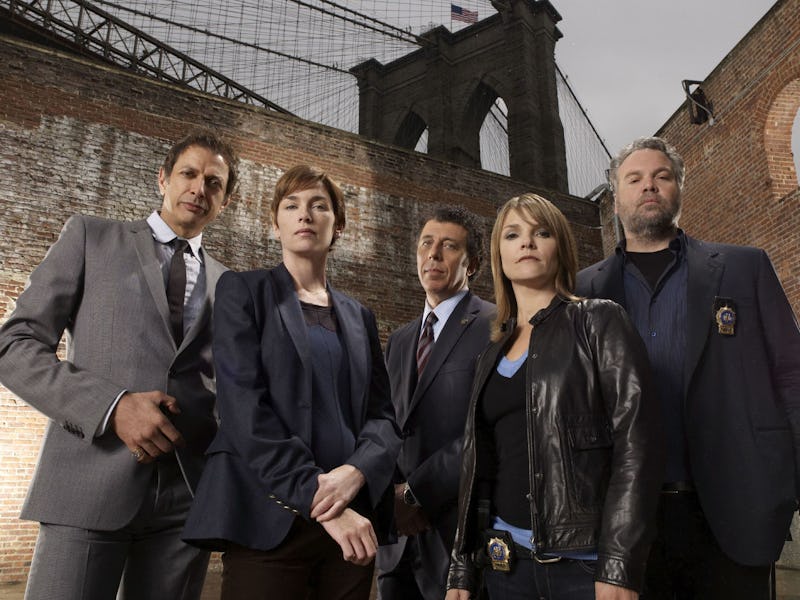Science Proves TV Detectives Are Terrible at Their Jobs
Bringing down a criminal organization requires a lot more than knowing who's in it.

On television, crimes get solved when David Caruso takes off his sunglasses or Ice-T runs up a staircase shouting something ridiculous. But criminals and criminal syndicates are, in reality, a bit more resilient than all that. Ironically, the shows we refer to as procedurals are all about results while real detectives focus on method. To bring down baddies, law enforcement officers need to be dedicated and team-oriented, but, more than anything, they need to understand the underlying dynamics of criminal organizations.
In an attempt to codify what experienced detectives know in their bones, a hodgepodge group of mathematicians, anthropologists, and information researchers hailing from Italy and Southern California have pulled together 10 years worth of data pulled from investigations of the Sicilian Mob (a.k.a. Costa Nostra). Parsing through that information, they looked for the most effective investigative strategies — the ways in which cops were actually able to affect a large scale criminal enterprise.
What they found is that cops tend to go after the mob in two big ways: By targeting known members of the mob, often covertly, or by targeting individuals or groups who work with the mob, but aren’t actually part of it in a key way. The researchers label these the Criminal Networks and the Contact Networks respectively. And you’ve seen these things on television. In Law and Order: SVU, Benson and Stabler might be looking for a suspected rapist by making the rounds on the streets and questioning ex-cons. They want to know if anyone knows a guy who knows a guy who knows their guy. By contrast, Rust Cohle in True Detective, as a nihilistic cop caught in a theater of Southern Gothic depravity, throws on a fake identify and infiltrates a white-supremest biker gang to catch a suspect. Neither show is an exercise in subtlety, but there it is.
To understand why these processes yield very different results, you have to understand that there is a hierarchy of power in criminal organizations. Higher-ups make the orders, and underlings, with little knowledge of larger machinations, commit the actual crimes and sometimes take the fall. What makes getting information about the mob difficult is that the people on the street and in the jails don’t actually know anything useful.
The researchers found that cops met with much more success investigating the mob by gathering information through external sources than by sending in undercover agents or attempting to infiltrate an organization. The refractory Contacts networks are much more vulnerable and it’s easier to get a picture of the organization’s plans by harvesting as much evidence as possible than it is by trying to get someone to squeal. In other words, if a Hollywood movie came out about a truly effective investigator, it would be fairly boring. There would be a lot of conversations with bartenders, bouncers, drivers and the like and less focus on using strings to deduce the management structure of the mob. That structure is fundamentally known so it’s better by far to know what the organization plans to do than it is to know what the organization is.
That said, it’s a hundred times more exciting to see a movie or a TV show about an undercover cop trying to do his job without getting killed, than it is to see a pair of rookies sitting at a tape player transcribing hours of recorded footage pulled off wiretapped phone. But that portrayal severely misleads viewers about how the police actually conduct meaningful work that leads to the arrests and conviction of organized crime bosses and henchman.